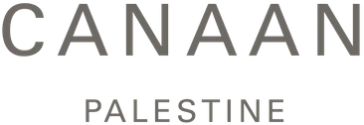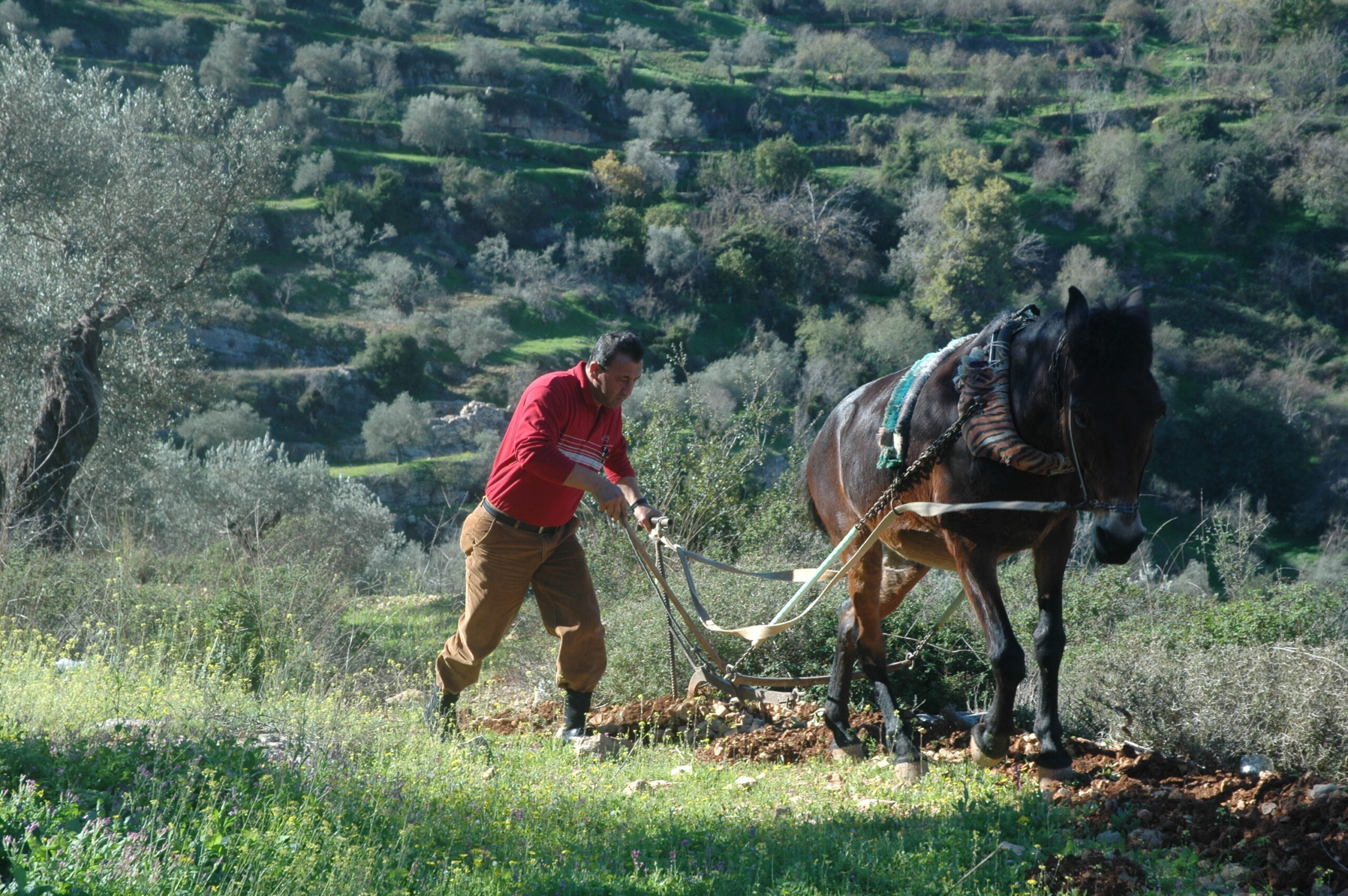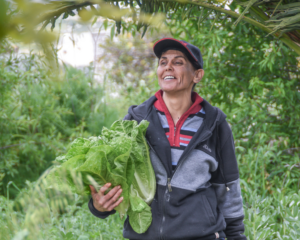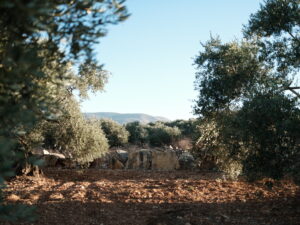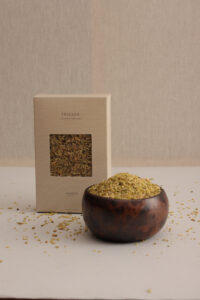What is Fair Trade? How Canaan Supports Fair Trade Farmers?
The effects of buying fair trade food are much deeper than many people realize. This is especially true for fair trade farmers in Palestine, where olive oil is the most important sector. Over 100,000 Palestinian families depend on the olive harvest and the sale of olive oil for their income. For these farmers, a working relationship with an honest and transparent distributor is key for the wellbeing of their entire family.
Canaan Palestine and fair trade are one and the same – we’re a social entrepreneurship project established in 2004 with the goal of applying the fair trade model to olive oil. We connect with fair trade farmers across Palestine under the banner of fair trade. We are not just here to buy the farmers’ olive oil – we are here to empower them and build a partnership.
What is fair trade? What does fair trade do? This is how Canaan applies and upholds the principles of fair trade.
What is Fair Trade?
Since fair trade has such extensive goals, it can often be described in different ways by different people and organizations. The World Fair Trade Organization defines it as this: “Fair trade is a trading partnership, based on dialogue, transparency, and respect, which seeks greater equity in international trade. It contributes to sustainable development by offering better trading conditions to and securing the rights of, marginalized producers and workers.”
The idea is simple: treat people like people. Recognize the hard work and artistry that they put into their product, then structure the working relationship in a way that ensures long-term wellbeing for their lives and their children, who are also in line to inherit this way of life.
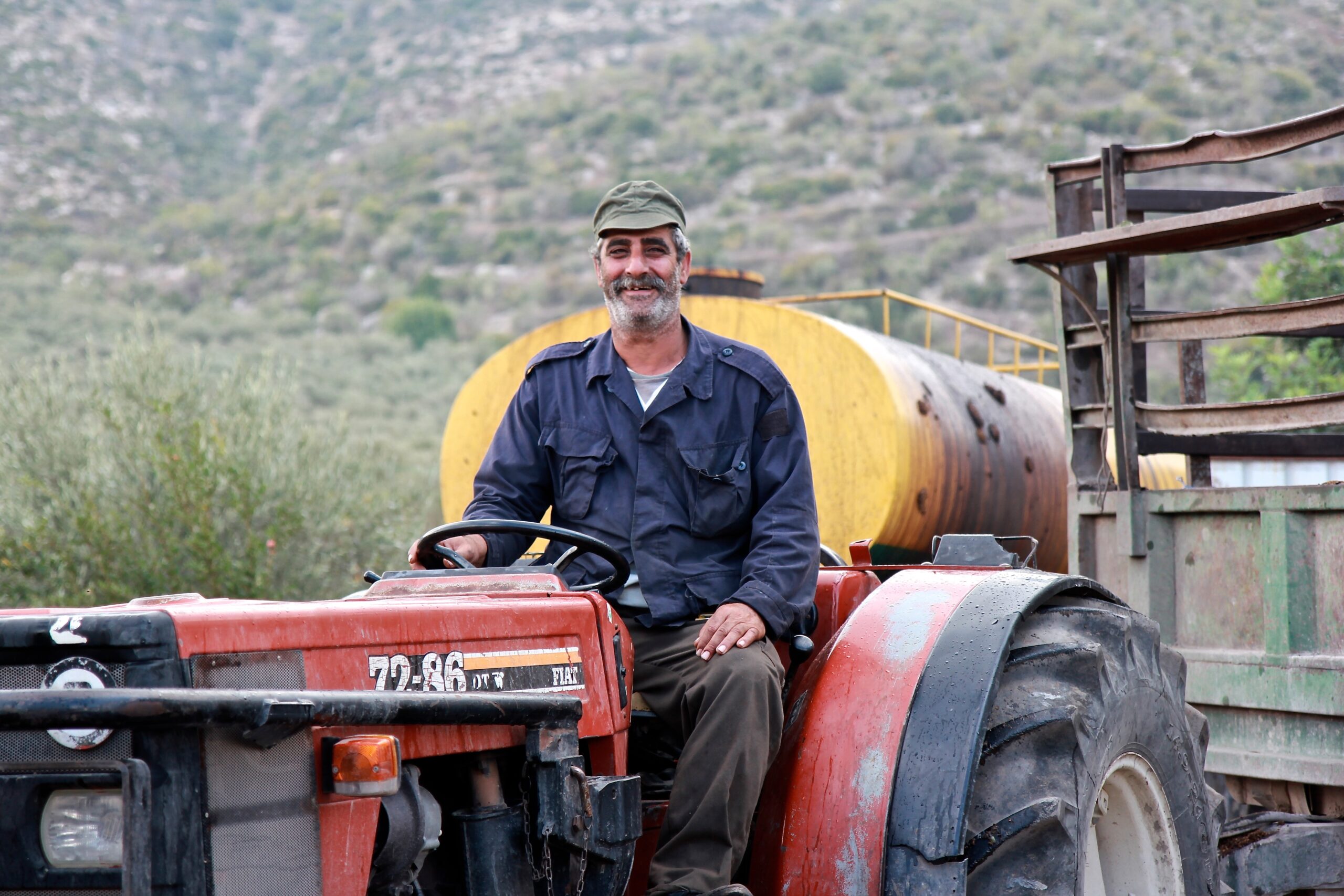
We boil down the lofty mission of fair trade into actionable principles: fair prices, fair trade premium, community stewardship, environmental stewardship, embracing cultural heritage, fair labor practices, full direct payment, purchase guarantee, and transparency.
Fair Prices
Above all else, fair trade farmers must receive fair prices for their output in order to thrive – not just survive. Across Palestine, the olive crop is the main source of income for over 100,000 families. An entire year’s work is at stake during the once-per-year olive harvest, and the farmers depend on getting a good return for their olive oil.
When Canaan Palestine first started, the industry as a whole was on a downward trend. The market price was so low that farmers were unable to make a living. The olive oil market in Palestine was headed toward failure, which would have not only have devastating effects on the economy, but also on the culture and the environment.
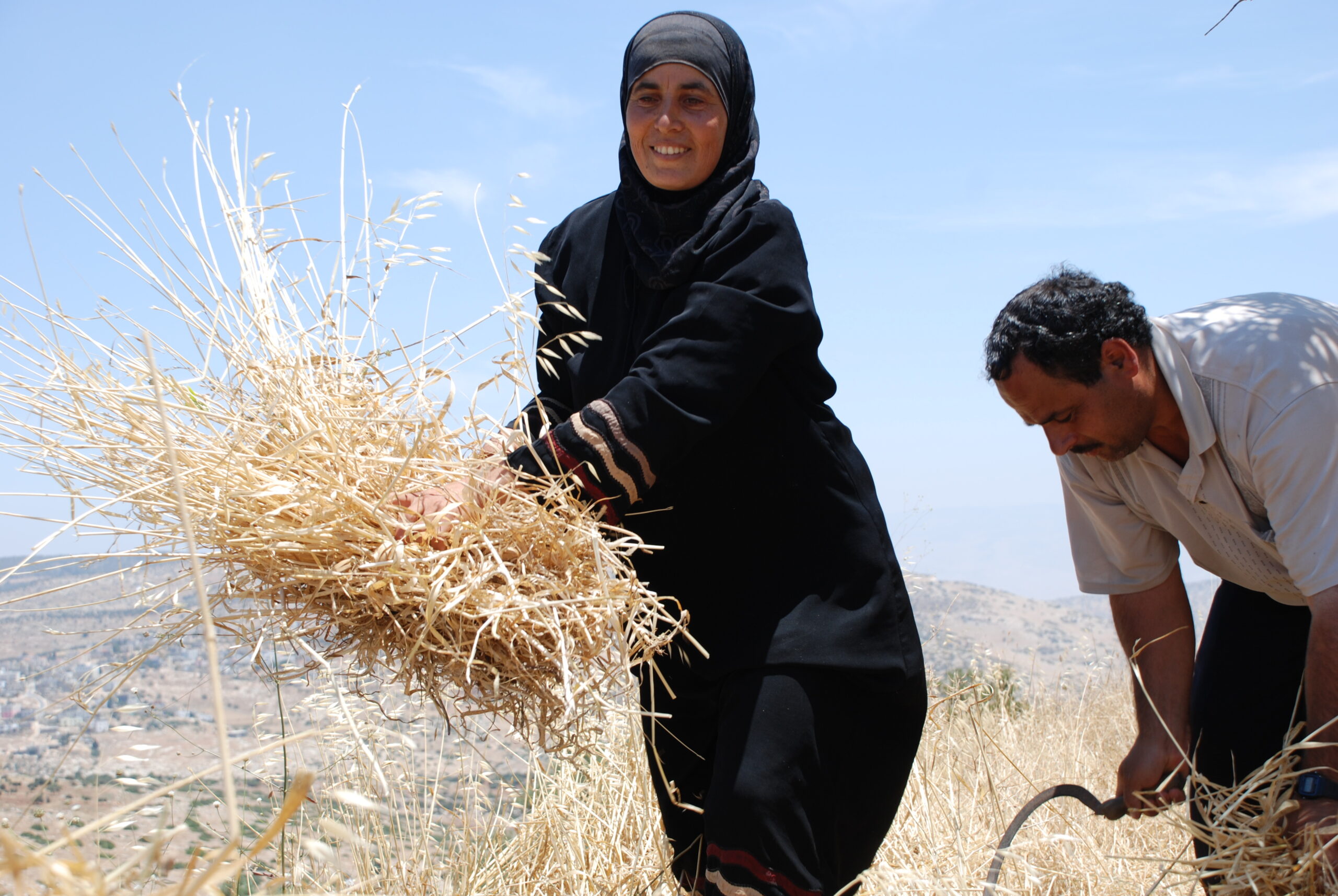
We set out to pay a fair price to preserve this agriculture. We ensure that farmers can make a living and be rewarded appropriately for their hard work. They can be proud to be fair trade farmers.
The fair prices are determined by experts, who decide on a minimum sustainable price by studying all aspects of farm size, yield, and cost of living. Regardless of market fluctuations, farmers are given a safeguard by having a guaranteed minimum.
Fair Trade Premium
When you ask, “What does fair trade do?” you must also ask, “What do the farmers do?” The two are directly correlated. Farmer’s work is hard manual labor. They must tend to large areas of land and maintain healthy ecosystems to produce nutrient-dense food. A fair trade premium pays it forward to the farmers, in appreciation of their devotion to conservation.
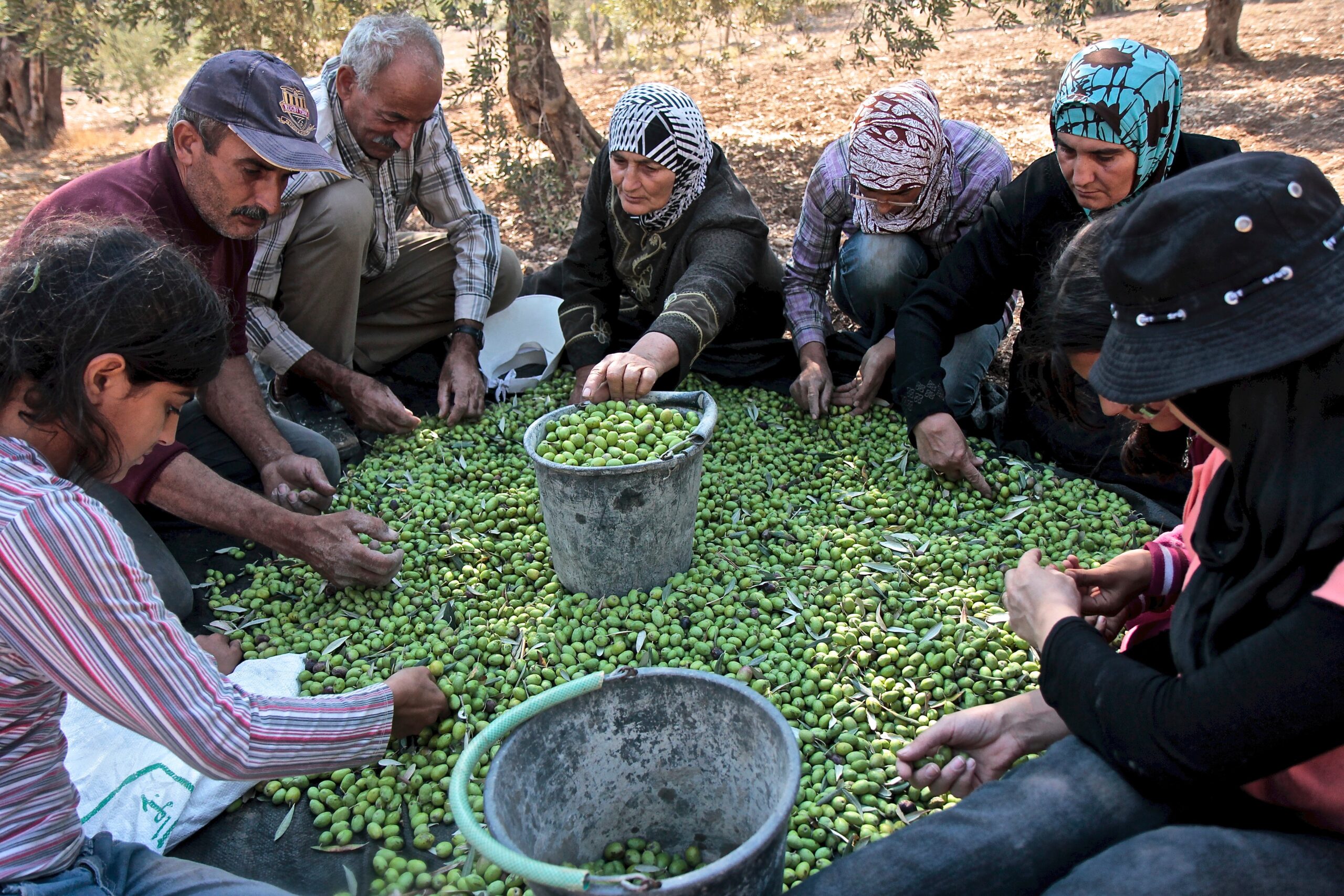
The premium is determined at the same time as market price, by the same board of farmers. The premium increases the price that Canaan Palestine pays to the farmers, giving them a fair deal. Part of the premium goes to the farmer, added to the reward for their hard work for the harvest, and part goes to the Palestine Fair Trade Association for the cost of running the association. A final part of the premium goes directly to the villages, into a village balance for community development projects. Each project is decided on by the communities themselves.
Community Stewardship
The sale of olive oil supports not just the farmers’ families, but the community as a whole. Since part of the fair trade premium goes into village balances, this acts as systematic encouragement for community stewardship.
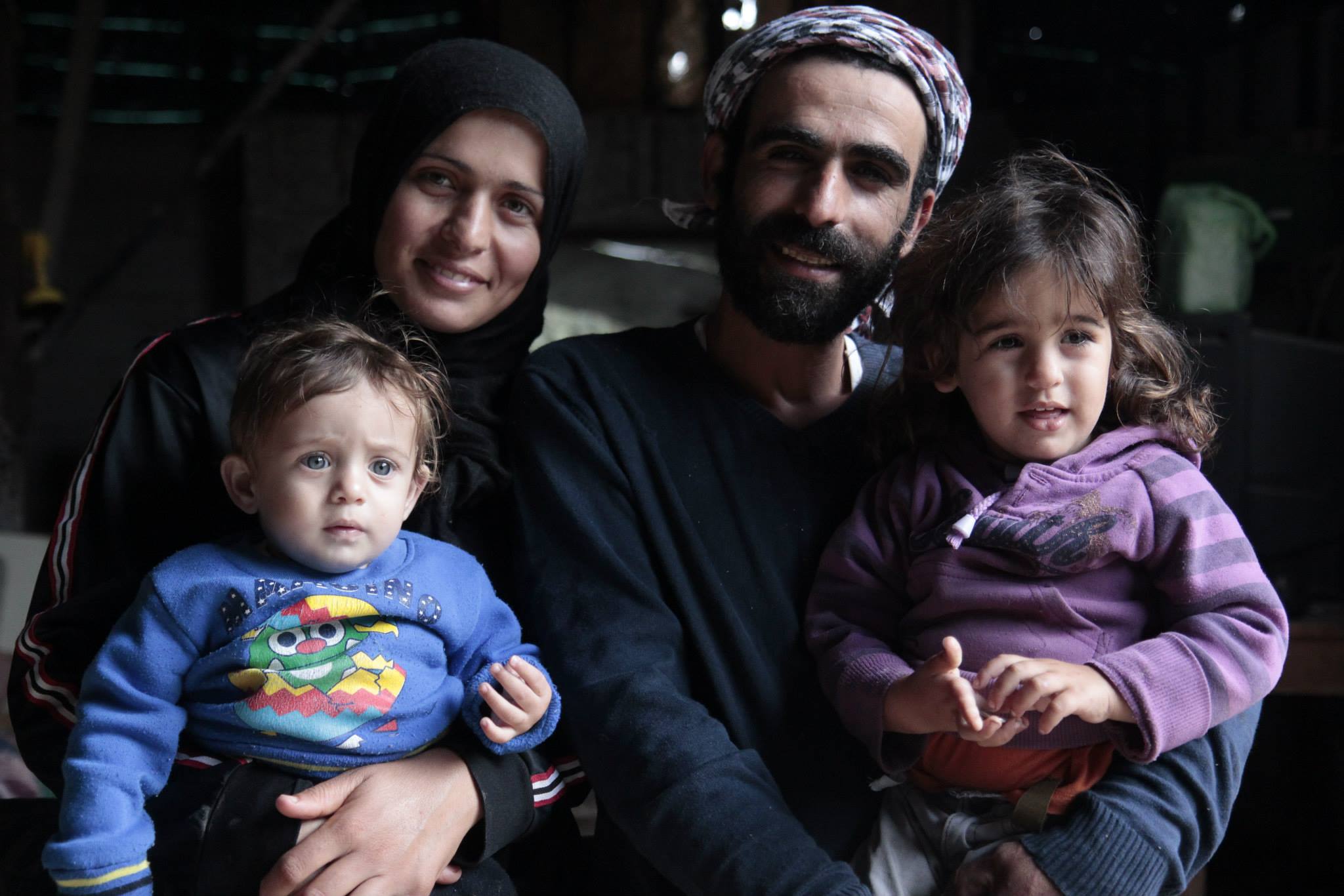
Fair trade farmers with Canaan Palestine automatically get opportunities to be a part of a larger impact on the community. Each farmer gets a vote for what the village balance is used for, which puts them in a position to think about their community, its needs, and what developments could benefit all.
Ultimately, this practice allows for collective decision-making and consensus-building, expanding the feeling of community in the villages. Canaan Palestine isn’t just about the farmer – it’s about the wellbeing and development of the people of Palestine as a whole.
Environmental Stewardship
Anytime we grow food, we impact the environment. The wellbeing of the environment naturally goes hand in hand with the wellbeing of the farmers. Growing fair trade food requires farmers to improve water and soil quality, avoid harmful chemicals, manage waste and pests, protect biodiversity, and reduce greenhouse gas emissions. By taking on these principles, fair trade farmers don’t come into contact with the harmful chemicals of conventional farming. They also reap the benefits of a happier local environment, overflowing with biodiversity, clean soil, and clean water.
Canaan’s team stays in touch with farmers year-round, throughout the growing season. Part of our mission is to support family farming specifically through small-scale regenerative agriculture, which includes the traditional practices that our farmers have used for generations. Regenerative farming consists of holistic practices that reverse climate change by improving soil health, expanding biodiversity, increasing organic matter in soil structure, and improving the water cycle. These practices create a sustainable food system while also mitigating climate change.
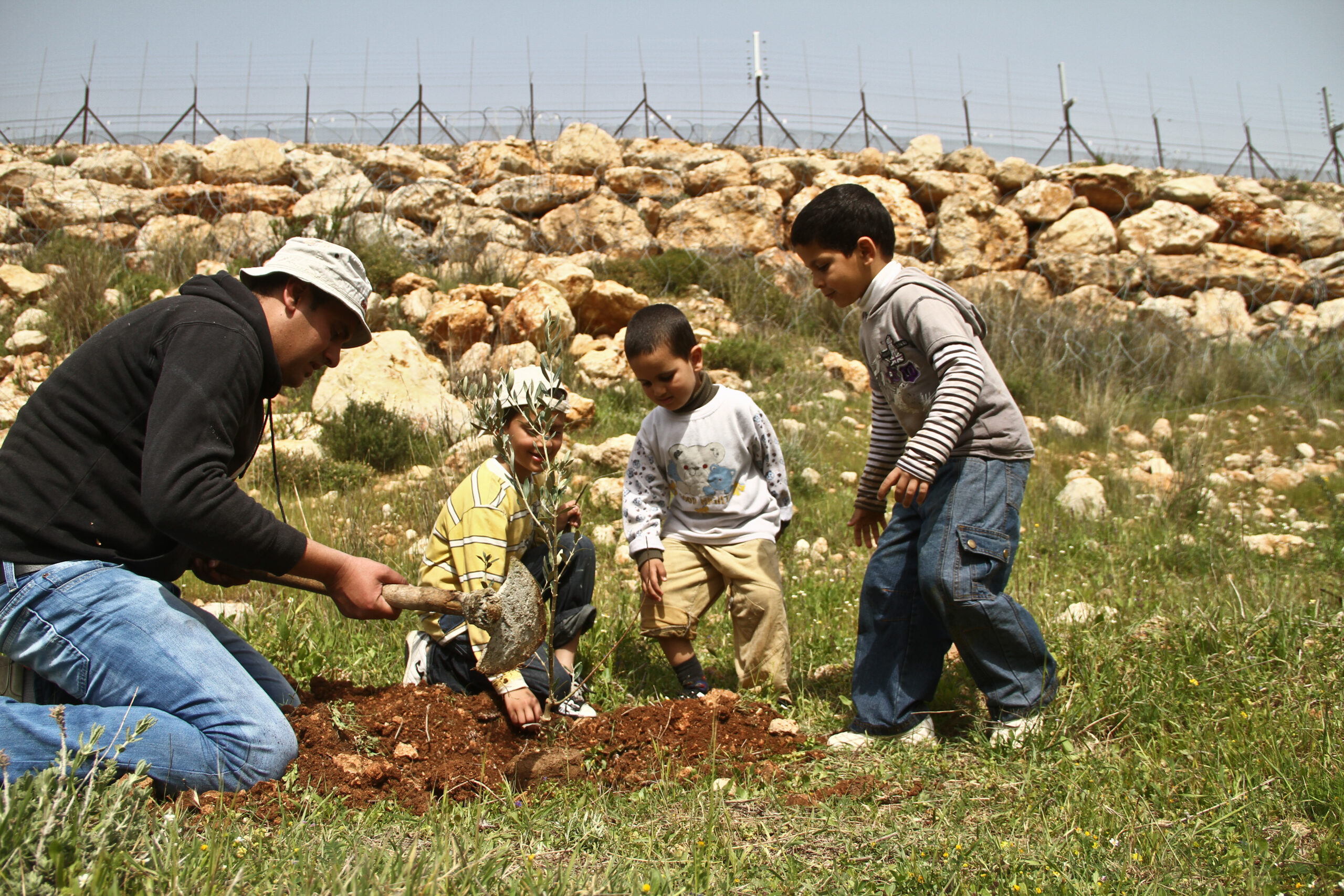
Cultural Heritage
Olive trees are resilient and can produce fruit for thousands of years. Palestine is home to some of the oldest olive trees in the world, some as old as 4,000 years, and families pass down olive trees over generations. When olive harvest begins in October, there is a sense of tradition and heritage, as many farmers are mindful that many generations past tended to the same trees that they’re harvesting today.
Our products are centered around traditionally grown foods of Palestine, which means our work is naturally intertwined with the Palestinian cultural heritage. We embrace and align our work with the society in Palestine. It is with great respect that we acknowledge the importance of the work of our fair trade farmers, some of which still nurture ancient olive orchards. This vibrant cultural heritage is what we owe our business to.
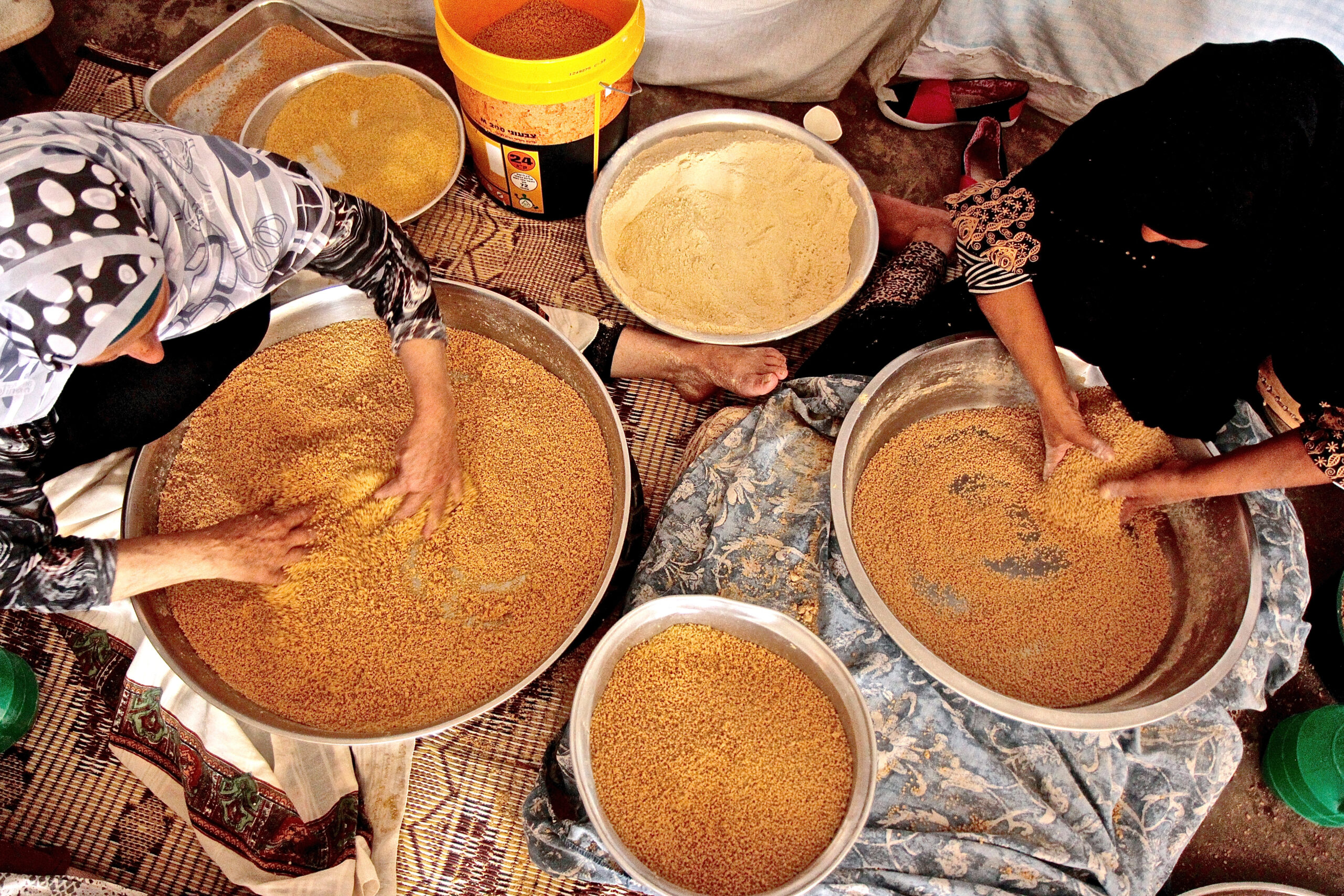
Fair Labor Practices
Fair trade prohibits child labor, forced labor, and discrimination, giving workers collective bargaining rights and the freedom of association. It encourages women’s participation in work as well as in leadership. Fair labor practices also take conditions into consideration, ensuring that all workers are provided with a safe place to work.
Canaan considers fair labor practices in two ways: employees working at Canaan’s facility and the farmers’ hired labor that they may employ on their farms. All employees have a safe and comfortable working environment without any potentially harmful chemicals or materials. They receive health care. They’re also provided with a fresh breakfast each morning, which consists of whole wheat from original Palestinian landrace varieties which are grown organically by our farmers, plus flatbread and tea with fresh mint.
Beyond this, Canaan also ensures that hired laborers on the farms are paid fairly. Women and men are paid equally and child labor is strictly prohibited.
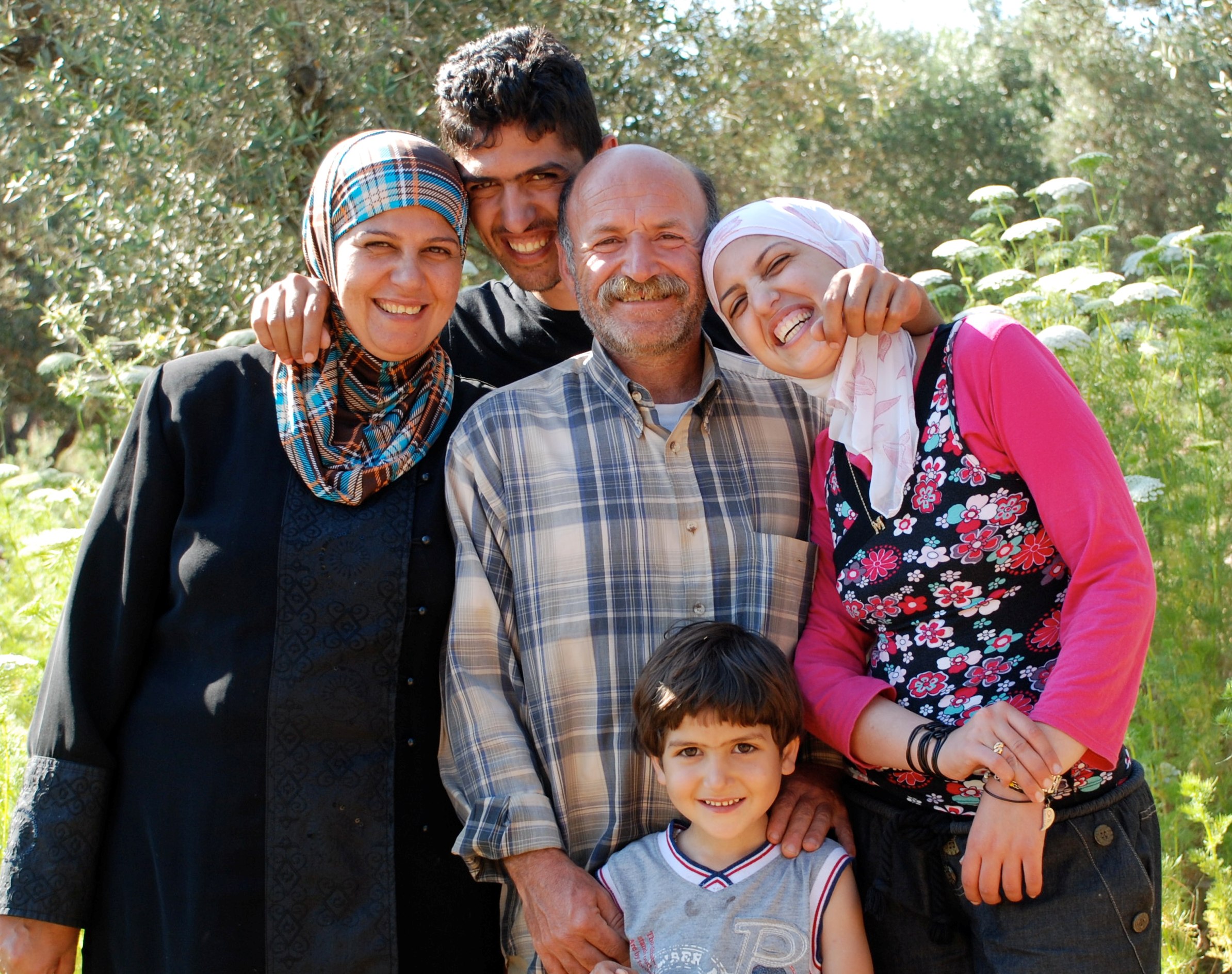
Fair Labor Practices
For olive farmers, full direct payment is imperative for the timelines that their business runs on. Oftentimes, olive farmers cultivate additional crops, like wheat and legumes. The olive season occurs just before the rainy winter season, which is when these staple crops must be planted. Farmers use the funds from the olive harvest are to pay for the costs of planting.
The rain doesn’t wait for the farmer, so they must also be financially ready to plant when the time comes. There’s a small window of time for planting – if it’s missed, the year’s crop is lost entirely. Farmers depend on the financial stability of the olive crop for the continuation of the farming sector as a whole. With full direct payment from Canaan Palestine two weeks from pick up, farmers are given a hefty check that ensures that they’ll be ready for the next planting season.
Prior to Canaan, traders would manipulate the market by waiting to purchase until after the planting season, when farmers were indebted to farming suppliers. Under the pressure of their debts, farmers were forced to sell at lower prices. Canaan pays fair prices with prompt payment terms, which directly benefits the farmers. On a larger scale, Canaan’s work has changed the entire market dynamic in Palestine, putting the farmer back in control.
When cash flow allows, Canaan also provides cash advances in the month of September, which allows farmers to prepare for the harvest as well as for university tuitions.
Purchase Guarantee
Year after year, Canaan works with the same farmers, many of which have been with us for over a decade. The impact of our dedication to each farmer’s olive crop can be seen in the vitality of every community we reach.

Our purchase guarantee assures the farmers that Canaan will purchase their olive oil when harvest comes. With this guarantee, farmers can focus on what they do best: nurture life on their land.
Transparency
The concept of fair trade allows us to be more connected with the source of our food, and we accomplish this through transparency. Transparency means that we are being fair to the consumer, showing them the farmers behind the olive oil, and welcoming them to see the abundance of life and culture in Palestine.
Of course, coming to Palestine is not possible for everyone, but there’s no need to take our word for the standards we uphold. Each year, organizations like EcoCert and Fairtrade International (FLO) visit us to review our operations and certify that we are operating according to internationally recognized fair trade standards. The more informed you can be as a consumer, the more confident you can feel that our values align and that you’re supporting a great cause.
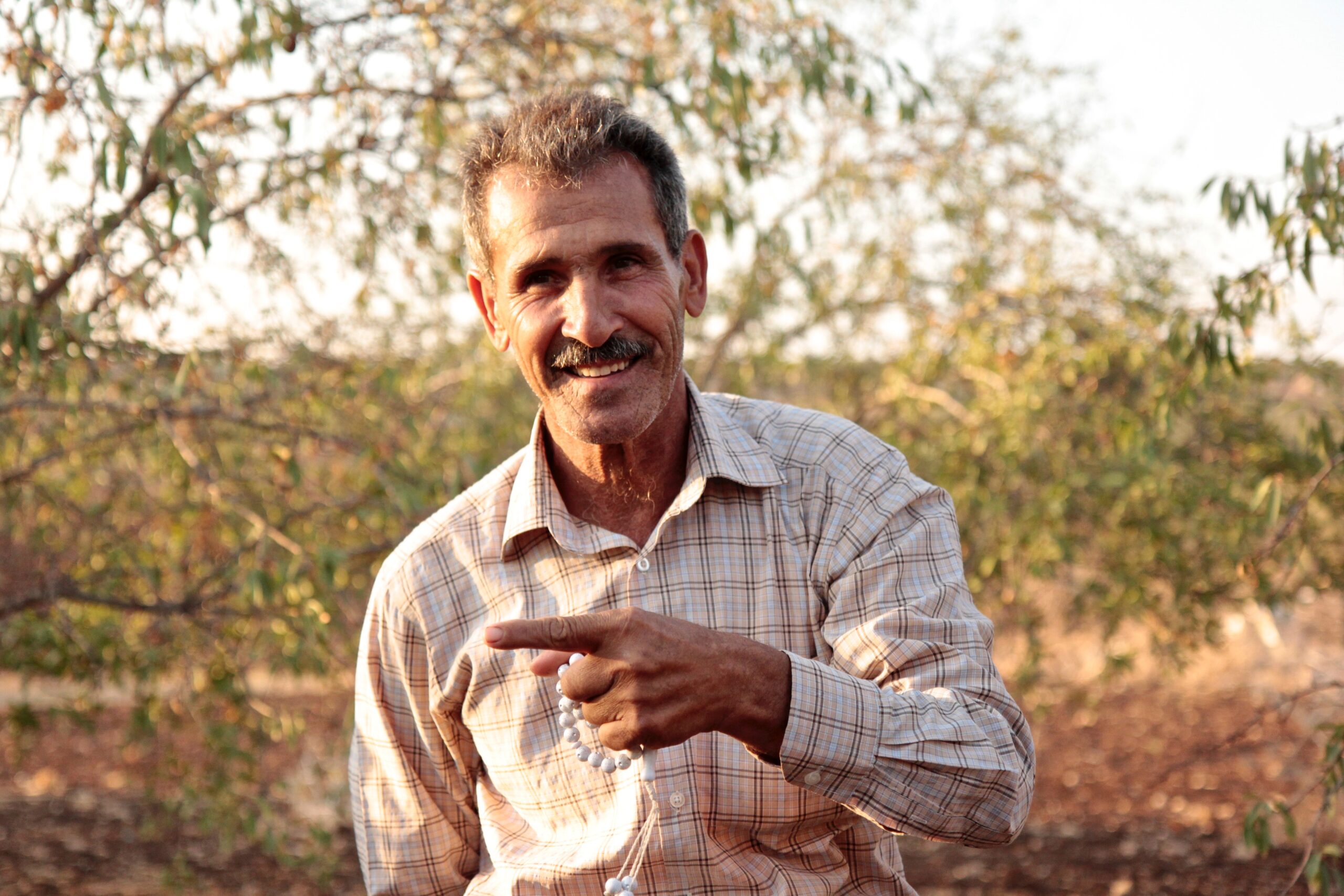
Fair trade standards verify that the relationship between Canaan, the farmers, and the environment are up to par, but we take things further than that. Since Canaan is a social entrepreneurship project, our efforts go far beyond the minimum. Through our blogs, you can learn the various ways we impact the farmers and the ecosystems they serve. We provide first-hand accounts that showcase the efforts toward a sustainable food chain and economic empowerment that are vital to our mission.
What Does Fair Trade Do for Fair Trade Farmers?
We founded Canaan Palestine on principles of fair trade – for the farmers, for the community, and for the planet. We set out to empower farmers with new market opportunities while building long-term relationships infused with respect and dignity.
Fair trade food is much more than just food. Though it isn’t easy to work with small-scale, individual farmers, we do so because we see it as an essential part of our agriculture, food security, cultural preservation, and the conservation of the environment.
So, what does fair trade do? Each farmer is a wealth of knowledge and wisdom, with the ability to read the land and understand an ancient language. Fair trade provides a way for them to apply this knowledge and be rewarded for it. As they tend to the health of the land, the land tends to ours in a sacred relationship worth cherishing. By using the fair trade principles to treat the farmers with respect, we can continue this cycle of life, passing it down to new generations and enjoying the good food that is a result of it.
